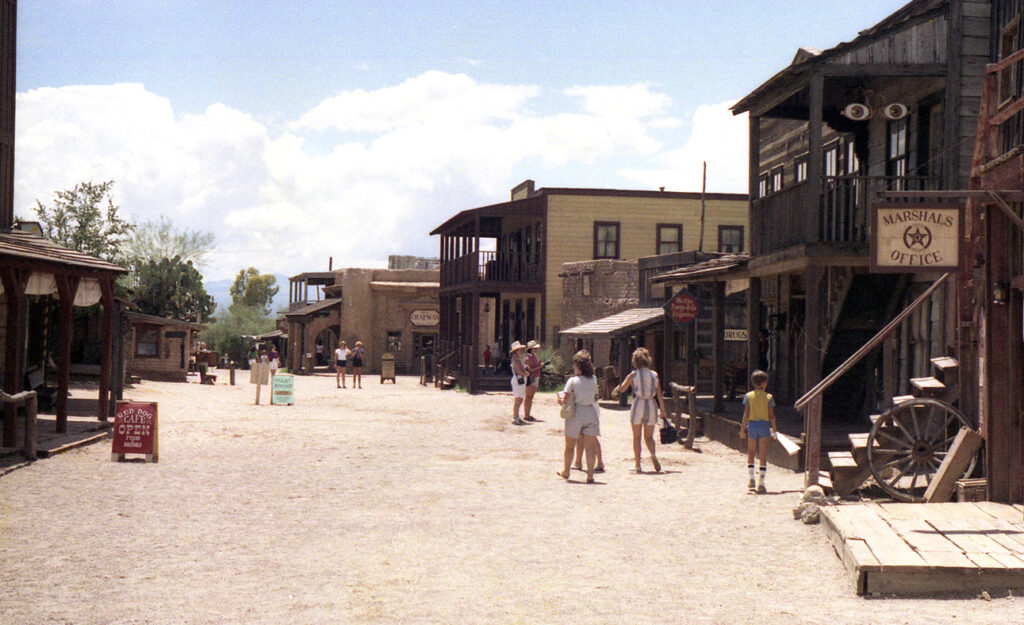
By JOSHUA BAILEY
Pima Post
In life, every now and then something unique comes along in a time and place that’s just sustainable and right enough for it to prosper.
The economy is no different: Come up with a business idea, and it can grow into something massive. However, once these conditions become unsuitable, much like cellular life, a business may slowly burn up in troubling waters.
The desert lot that became Old Tucson Studios was purchased and constructed by Columbia Pictures in 1939 for the set of their film “Arizona.” Various portions of the park were used as sets for countless Western movies thereafter and continued to do so until its closing. The park had boasted live performances by artists and dancers, historical reenactments of famous gunfights and various attractions for younger audiences among many other events.
Before the pandemic, Old Tucson had a reported yearly revenue of $96,200, according to owler.com, a company profile reporting website. Its total income of almost $5.5 million annually was eclipsed by operating costs and upkeep of the park.
Like a life raft facing a tropical storm, it was difficult for Robert Shelton, the owner of Old Tucson, to keep the business afloat once the pandemic was in full swing.
In the span of merely a few months, Old Tucson’s operation costs eventually overtook its budget. Lack of local visitors and tourists alike meant some shows would hardly attract a crowd of 10.
During the Donald Trump presidency, thousands of small businesses across the nation. were granted PPP (Paycheck Protection Program) funding by the federal government of up to $10 million, covering twice the expenditures of employees’ paychecks. However, despite taking these loans, the park still failed to net appropriate revenue and eventually closed its doors, permanently. At least, under the renamed Old Tucson Company LLC.
Until March, officials in Pima County had been paying $60,000 annually to rent the space occupied by Old Tucson. In the meantime, a 14-man task force had been created by the county to find a new owner who could breathe life into the park.
The search eventually ended with Colorado-based American Heritage Railways. The company is known for its ownership of several historical locations and railways, still actively providing passenger service to this day. American Heritage Railways did not respond to several voicemails and email requests for comment.
Pima’s Head of the Department of Attractions and Tourism offered a quaint email on the status of the acquisition: “As of April 5th, 2022, Pima County has signed over the property’s lease to American Heritage Railways in writing. Beyond that point, we have no formal date on when the park will be in working order again.”
Time will tell what will happen with Old Tucson, whether it remains a dusty lot or experiences a rebirth.
